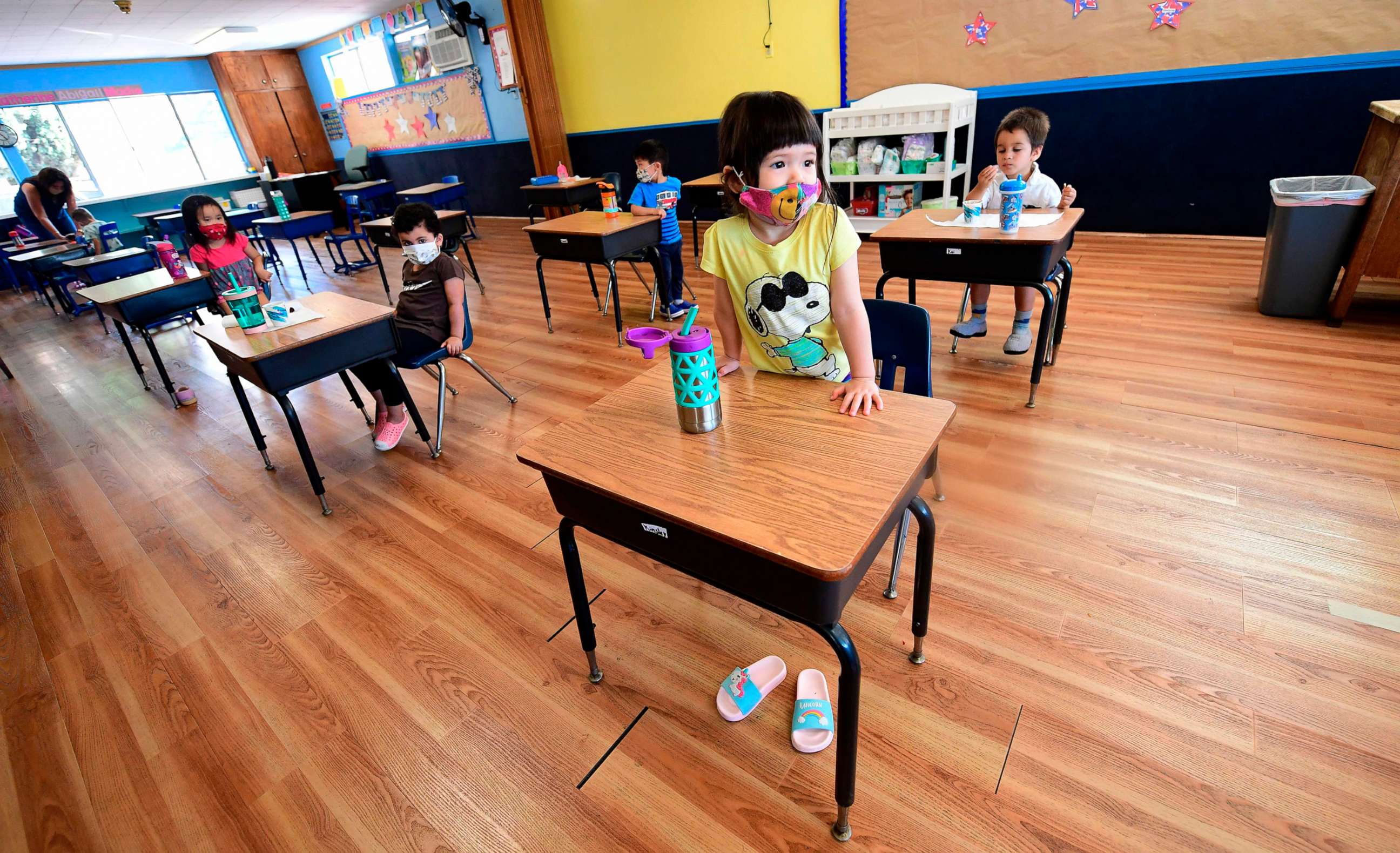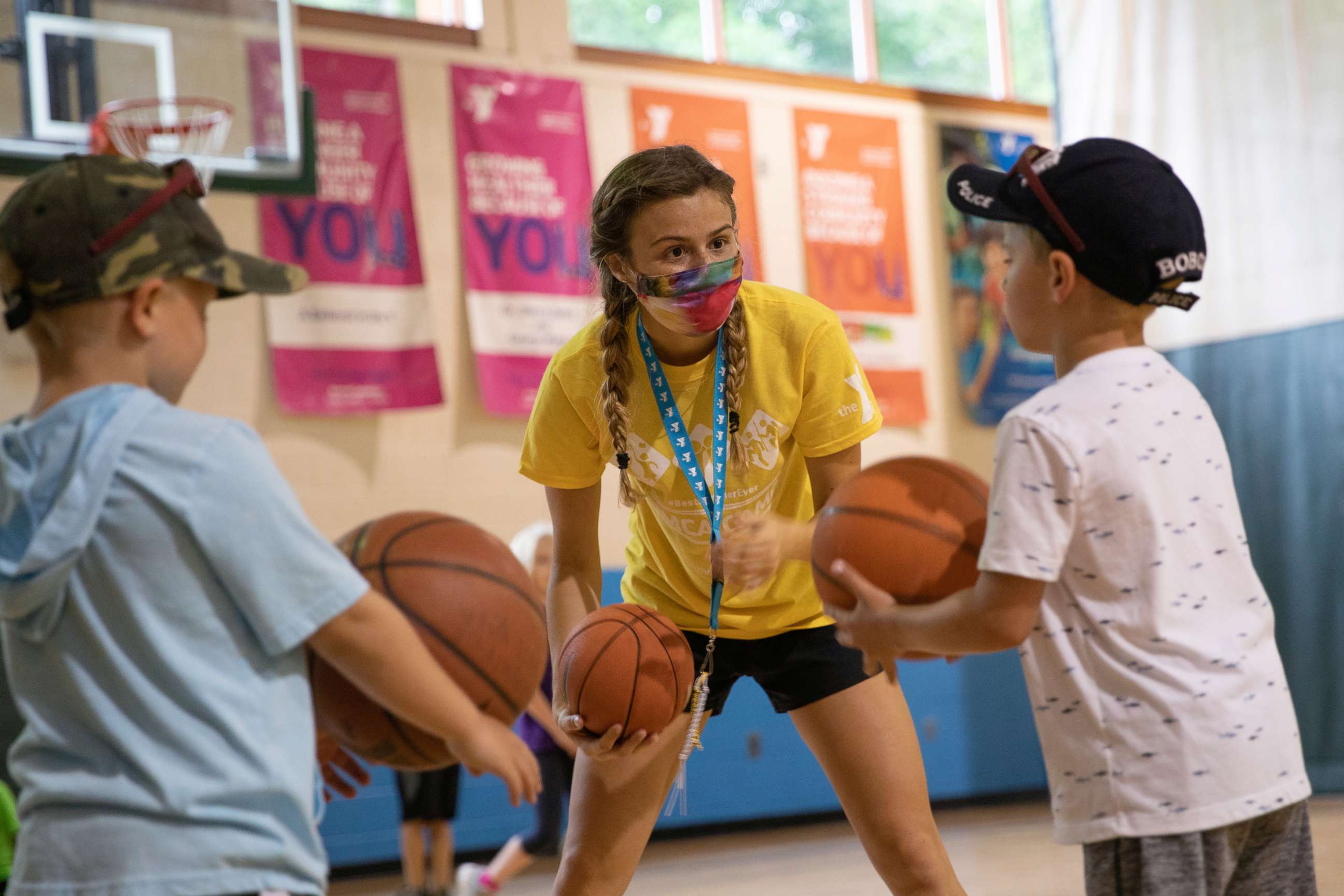The pandemic is not sparing children: Opinion
The general refrain that children are not as affected by COVID-19 is wrong.
Much of the conversation surrounding COVID-19 has centered on the impact on adults. Even the debate about reopening schools is often framed around adults -- the important child care needs of working parents. But COVID-19 has had a stark impact on children in their own right. Rather than cutting funding to schools, as President Donald Trump threatened last week, a clear-eyed understanding of the pandemic's consequences for children would galvanize investments benefiting all of us, across generations.
Children appear more likely to have mild or asymptomatic infections. Few children in the pandemic's early U.S. epicenter, New York, became sick enough from COVID-19 to require hospitalization. In the current surge of infections, more cases and hospitalizations of children are being reported. For example, as local news outlets have reported, Florida has seen an increase in serious illness from COVID-19 in children under age 4 and an increasing and high positive test rate for those younger than 19. Globally, a small group of previously healthy children have developed a potentially life-threatening delayed response to COVID-19 now called multi-system inflammatory syndrome in children (MIS-C). And the long-term health effects of COVID-19 infection remain unknown. Reducing community transmission should be the No. 1 priority and is essential to ensuring children stay healthy during the pandemic.
Paralleling the delayed presentation of MIS-C, the most harmful effects of COVID-19 may not be immediately apparent. Children, particularly those who are low-income or otherwise vulnerable, have been disproportionately affected by the impact of the pandemic on non-COVID health care needs and services. The pandemic drastically disrupted routine pediatric vaccinations with doctors in the Vaccines for Children program ordering 2.5 million fewer doses of routine non-influenza vaccines from mid-March to mid-April compared to the same period in 2019, according to data compiled by the Centers for Disease Control and Prevention. Following the return of in-person elective health care services, pediatric outpatient health care visits have not rebounded nearly as much as adult outpatient visits, suggesting many children are not receiving critical preventive services.

Children's health needs are likely to increase as a result of the cascading repercussions of the pandemic -- disruptions to education and socialization, long-term stress and trauma and rising food insecurity. Learning losses, known as a "COVID-19 slide," suggest that children may return to school with only half as much progress in mathematics as they would in a typical school year. Remote learning does not work for everyone; parents of special needs students in New York City have already noticed regression in social and emotional skills, often despite virtual therapy sessions. And 57% of adolescents receiving mental health care utilize some school-based services that the pandemic has disrupted.
The challenges children face due to the pandemic are only more pronounced for those whose parents have lost a job or who have to work in unsafe conditions. More children could become uninsured as changes in employment and economic status affect coverage. Complications for children will only increase when the CARES Act's enhanced unemployment benefits, which have helped many families stay afloat, expire at the end of July. Children living in poverty, those living in congregate settings like juvenile correctional facilities, children living in homes marked by abuse or neglect and immigrant children all face disproportionate challenges due to the pandemic. Most tragically, a growing number of children have lost a parent to COVID-19, facing devastating grief while coping with fear and isolation due to the pandemic.

With COVID-19 cases on the rise, it would be easy for policymakers to put the needs of children (who can't vote) aside and focus on more immediately affected populations like the elderly. But we should grade our policy response a failure if the federal government continues to neglect the unique challenges COVID-19 presents for children.
What would it look like to orient a COVID-19 response around putting children first? In addition to protecting and building on the Affordable Care Act (rather than seeking to have it overturned as the Trump administration currently is in the lawsuit California v. Texas) we must increase federal support for Medicaid and the Children's Health Insurance Program. This pandemic should be the moment we finally make enrolling every child in health coverage a top priority.
The federal government also should lead a public health campaign that stresses to parents the importance of maintaining their children's vaccination schedules. Public health officials, particularly those who are parents themselves, must promulgate age-appropriate tools about the importance of mitigation measures including masks. A national mental health hotline for students and families could be modeled after one launched by the Los Angeles Unified School District, and, as others have pleaded, reducing community transmission in order to maximize the potential for in-person schooling to resume in the fall should be a national consensus.
The general refrain that children are not as affected by COVID-19 is inaccurate and harmful. We owe it to the next generation to focus on their needs as we respond to the pandemic, with an emphasis on the struggles of children who are particularly vulnerable to COVID-19 and the virus's more downstream consequences. Children's lives, like all of ours, have been upended by COVID-19. We cannot allow their absence from the political debate to mean their needs are forgotten.
Erica Turret is a recent graduate of Yale Law School, where she was a fellow at the Solomon Center for Health Law and Policy. Dave A. Chokshi is a physician at Bellevue Hospital, clinical associate professor at the NYU School of Medicine and the Gould Visiting Scholar at the United Hospital Fund.




